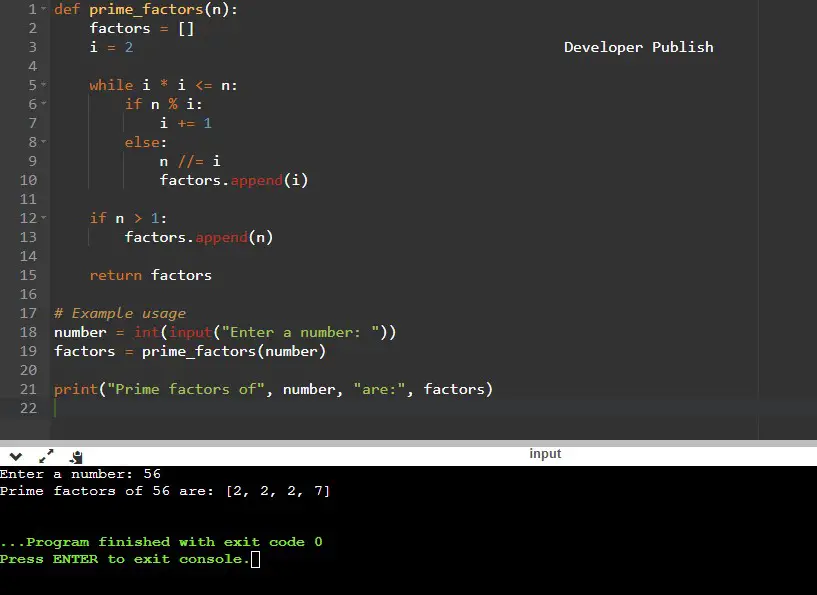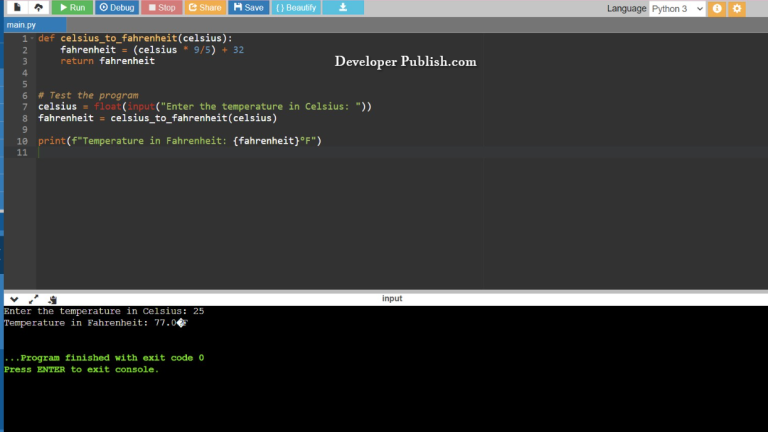The provided Python program is designed to find the prime factors of a given number. It utilizes a function called prime_factors() to accomplish this task. The program takes a number as input, either from the user or as a command-line argument, and proceeds to calculate the prime factors.
Problem Statement
Write a Python program that prompts the user to enter a positive integer and then finds and displays the prime factors of that number.
Requirements:
- The program should validate that the input is a positive integer. If the input is invalid, display an error message and prompt the user again until a valid input is provided.
- The program should calculate and display all the prime factors of the given number.
- The prime factors should be displayed in ascending order.
Python Program to Find the Prime Factors of a Number
def prime_factors(n):
factors = []
i = 2
while i * i <= n:
if n % i:
i += 1
else:
n //= i
factors.append(i)
if n > 1:
factors.append(n)
return factors
# Example usage
number = int(input("Enter a number: "))
factors = prime_factors(number)
print("Prime factors of", number, "are:", factors)
How it Work
The Python program to find the prime factors of a given number works as follows:
- Prompt the user to enter a positive integer.
- Validate the input to ensure it is a positive integer. If the input is invalid (not a positive integer), display an error message and prompt the user again until a valid input is provided.
- Define a function called
prime_factors(n)that takes the input numbernas a parameter. - Initialize an empty list called
factorsto store the prime factors. - Initialize a variable
ito 2. - Use a while loop that runs until
i * iis greater thann. This optimization ensures that we only check potential factors up to the square root ofn. - Inside the while loop, check if
nis divisible evenly byi. If it is, dividenbyi, appendito thefactorslist, and continue to the next iteration of the loop. - If
nis not divisible byi, incrementiby 1 and continue to the next iteration of the loop. - After the while loop, check if
nis greater than 1. If it is, it meansnitself is a prime number, so append it to thefactorslist. - Return the
factorslist. - Call the
prime_factors()function with the input number and store the result in a variable. - Print the prime factors of the given number.
The program follows this algorithm to find the prime factors of the input number. It utilizes a while loop, division, and iteration to determine the prime factors. The output is then displayed to the user.
Input/ Output

Explanation: The user enters the number 56. The prime factors of 56 are 2, 2, 2, and 7. The program calculates and displays the prime factors in ascending order.


